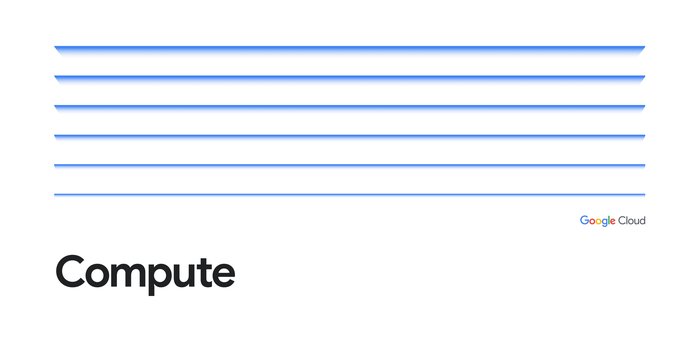IDC reveals 323% ROI for SAP customers using BigQuery
Snehanshu Shah
Managing Director, SAP
Try Google Cloud
Start building on Google Cloud with $300 in free credits and 20+ always free products.
Free trialIf the COVID-19 pandemic has taught us anything, it is that speed and intelligence are of the essence when it comes to making business decisions. Organizations must find ways of keeping ahead of competitors and disruptions by continually leveraging data to make smart decisions. The problem? Data may be everywhere, but it’s not always available in a form that businesses can use to generate analytics in real time. As a result, enterprise users are divided when it comes to data volume, with half telling IDC there’s too much data and nearly as many saying there isn’t enough. The first step toward extracting the full value of your company’s data, then, is to synthesize and process it at scale.
In a study recently published by research firm IDC, organizations running SAP reported using BigQuery to optimize data from their SAP applications including ERP, supply chain, CRM, and others as well as other internal and external data sources. IDC interviewed seven customers for this study with an average annual revenue of $1.8B, 36,000 employees and 1.5PB of data.
BigQuery is a fully managed serverless cloud data warehouse within Google’s data cloud, helps companies integrate, aggregate, and analyze petabytes of data. SAP customers use BigQuery to generate more impactful analytics and improve business results while lowering platform and staffing costs — and have reaped average annual benefits of $6.4 million per organization, according to IDC’s findings.
BigQuery provides major productivity and infrastructure benefits
IDC found that the benefits that BigQuery offered organizations fell into three broad categories: increased business productivity, IT staff productivity, and reduced infrastructure costs. These three factors combined to give enterprises speed, efficiency, and power that led to improved business results.
Business productivity benefits: Companies interviewed by IDC reported that BigQuery enhanced their ability to generate SAP-related business insights — including self-service options — by reducing query cycle times and delivering reports to line of business executives, managers, and end users more quickly. After adopting BigQuery, these organizations found that queries accelerated by 63% and business reports or dashboards were generated 77% faster. BigQuery provided data scientists, business intelligence teams, data/analytics engineers, and business analysts with easier access to more robust and timely data and insights derived from their SAP environments. This helped them work more effectively and deliver richer and more timely data-driven insights to line of business end users. “BigQuery for SAP has had a significant impact on our data analytics activities,” reports one respondent. “The speed of running queries is amazing. . . Our analytics teams have access to information and reports that they did not have before.”
IT staff productivity benefits: With BigQuery, organizations reported freeing up staff time to not only handle expanding data environments, but also support other data- and business-related initiatives. Since BigQuery is a fully managed solution, internal IT staff no longer had to conduct routine tasks such as data backups, allowing them to take a more proactive approach in leveraging their SAP data environments to support business operations. “Before BigQuery for SAP, we used to say that our team worked for analytics,” notes a survey respondent. “Our DevOps team was spending a lot of time doing carrot feeding, firefighting, and a lot of reactive work like patching. Now, we have been able to focus the majority of our time on proactive roadmap development and future functionality.”
IT infrastructure cost reductions: The IDC study showed that BigQuery helped respondents reduce costs by lowering their platform expenses and making management and administration of their data warehousing environments more efficient. These cost savings came thanks to BigQuery’s ability to consolidate data on a single cloud-based platform, limiting overlap, redundancies, and overprovisioning. Organizations also reduced the costs associated with maintaining and running on-premises data warehousing environments, including retiring less cost-effective legacy solutions. “The biggest area of value of BigQuery for SAP for us is that we no longer need to deal with having to maintain our own data,” explained a survey respondent. “We don’t have to worry about updates or administration, and most maintenance is now outsourced to BigQuery, including backups and business continuity.”
Speed, efficiency and power for improved results
Overall, respondents said that the enhanced ability to get value from their SAP data using BigQuery led directly to improved business results. More efficient data usage meant better strategy execution. Faster and more precise analytics gave more employees the information and tools they need to create more value for their organizations. BigQuery’s scalability and speed improved business operations and shortened time to insight. Customers gained a clearer real-time view of business operations, which helped them win new business, differentiate themselves against competitors, and reduce customer churn.
“The main benefit of BigQuery for SAP is real-time intelligence that helps us improve pricing, traffic management, routing configuration, and rating — the core of our business,” says a respondent. “This gives us the edge over competitors — when we have better intel and faster analytics, it allows us to improve revenue margins and business outcomes.” In fact, organizations increased revenue by an average $22.8 million. What could your company do with those kinds of results?
To learn more about the ways in which Google BigQuery can make your SAP organization more agile and efficient, read the full IDC report and check out additional SAP on Google Cloud resources.



